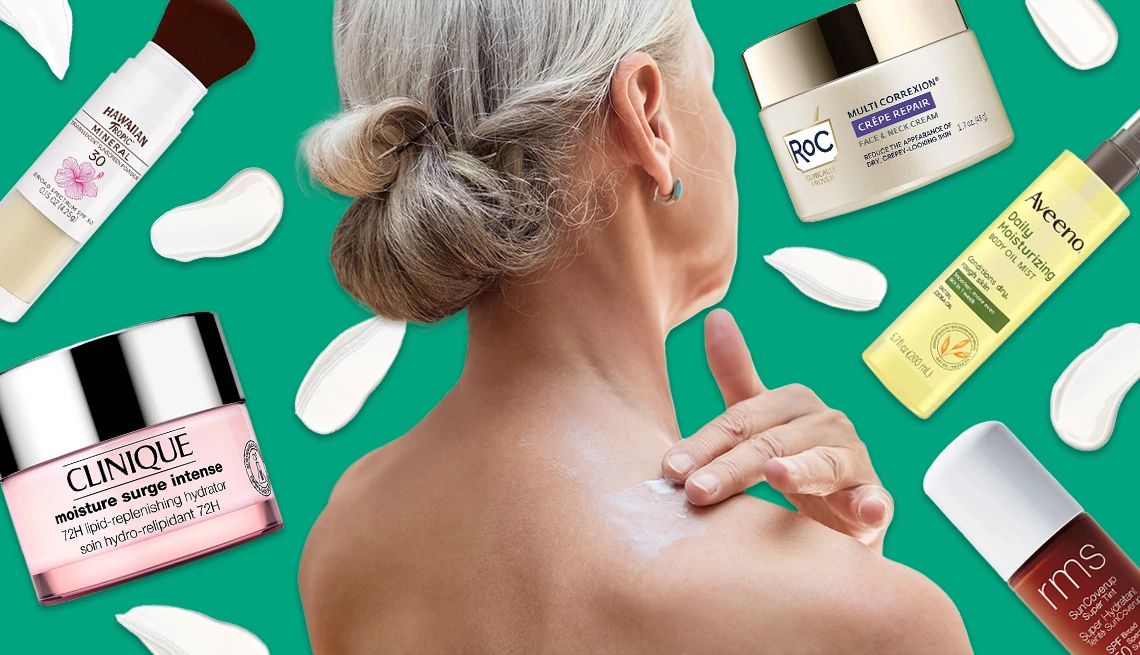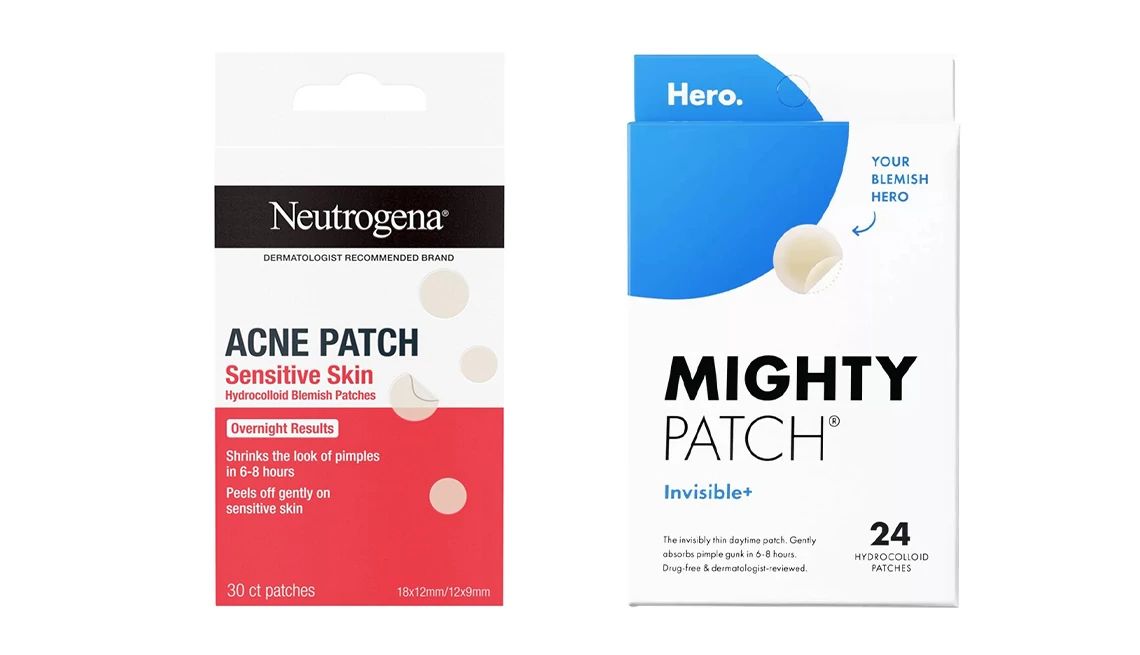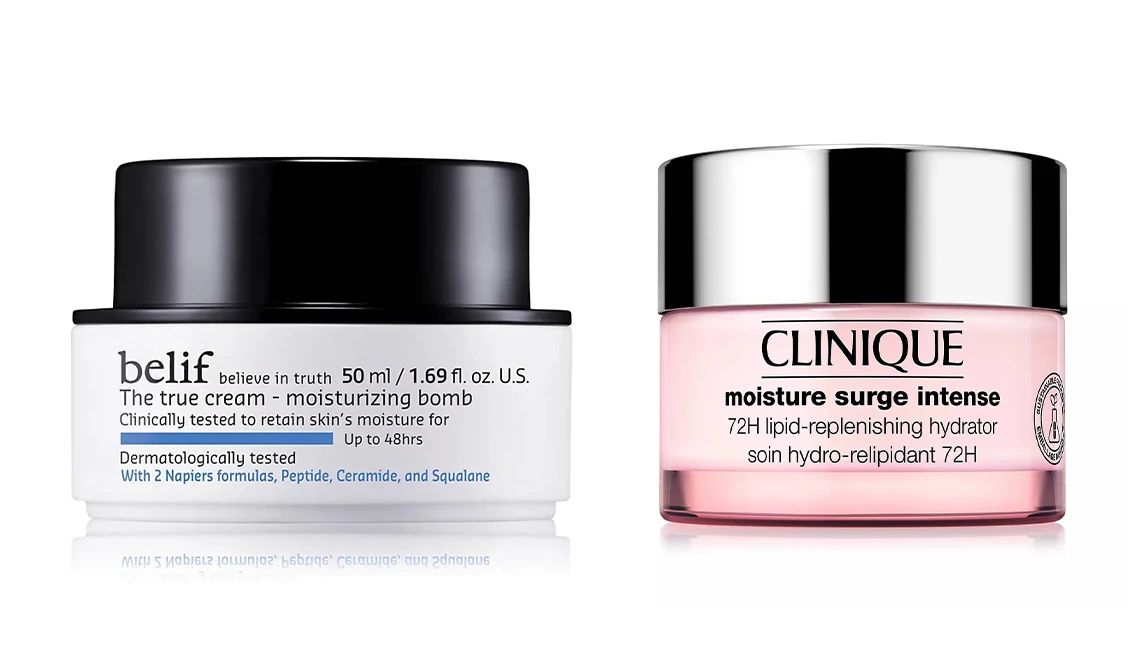AARP Hearing Center


It’s no surprise that dermatology is a thriving business. For many women, what was once an annual skin cancer check has become a gateway appointment to a menu of lasers, Botox and fillers. Your “derm” is your new BFF who offers advice on everything from sunscreen to eye cream. As a beauty editor and consultant who specializes in the 50-plus demographic, women ask me: “Do I really need a dermatologist’s guidance for every skin care decision?” The answer is … no. See your doctor about suspicious spots and moles, an itchy rash that won’t quit, stubborn nail fungus, warts and cold sores, serious adult acne and life-disrupting eczema, rosacea, and psoriasis conditions, but trust yourself to make the right everyday skin care choices. Here are the top 10 DIY solutions that smooth your way to healthier, happier skin:
1. Solution: Grab a SPF 30+ daily lifestyle sunscreen.
This isn’t your beach sunscreen. It’s the everyday one that protects your skin from sun damage, rain or shine, the one you’ll wear dressed up or down, around the house, at work and running errands. For incentive, remember that UV rays go right through clouds and window glass at home or in your car. Women say texture is the big sticking point because if it feels the slightest bit tacky or greasy or if it pills, they’ll find an excuse to skip it. There are two great options. The first is a double-dip method starting in the a.m. with a baseline moisturizer/sunscreen like Kiehl’s Ultra Facial Cream Sunscreen SPF 30 ($39, ulta.com), which gets reinforced later by a swipe of portable brush-on sunscreen like Hawaiian Tropic Mineral Translucent Sunscreen Powder ($19, target.com). The second option is a new category of multitasking hydrating tinted mineral sunscreens with zinc oxide designed specifically for year-round everyday wear like Supergoop! Protec(tint) Daily Tint SPF 50 Sunscreen ($44, sephora.com) with 14 shades, RMS Beauty SunCoverup Super Tint Broad Spectrum SPF50 Sunscreen ($49, nordstrom.com) with 13 shades and Nudestix Nudescreen Daily Mineral Veil SPF30 ($36, macys.com) in four shades plus sheer. They are easy to touch up during the day with a reapplication, leave no chalky residue and are ideal for mature skin.


2. Solution: Stick on blemish-beating patches.
No one with clear skin at 50 expects blemishes, but they do happen — especially when you try a new product with sensitizing ingredients. Add on top of that menopausal-related hormone changes plus stress, and skin goes bonkers. A reminder: As you age, estrogen decreases while the male hormone testosterone and the stress hormone cortisol increase, which may contribute to a surge in oil production and clogged pores. For one or more blemishes, take a new tactic and try hydrocolloid pimple patches like Neutrogena Sensitive Skin Acne Patches ($15, cvs.com), Hero Cosmetics Mighty Patch Invisible+ Acne Pimple Patches ($11, target.com) or Good Molecules Pimple Patches ($8, ulta.com). This is a trending category of thin, adhesive-backed bandages that absorb excess fluid, reduce redness and speed up the healing process in six to eight hours. Nearly undetectable on the skin and with no other ingredients added, they’re the high-tech update to messy creams and visible pimple treatments. They can even be used on blemishes that pop up on the neck, chest or back.


3. Solution: Find a moisturizer for dryness and dehydration.
Nearly every woman over 50 claims to have dry skin. In fact, it’s very likely a combination of dry skin, which needs oil, and dehydrated skin, which needs water. You don’t have to be a scientist to find a moisturizer that solves both, since cosmetic brands emphasize “hero” ingredients that do the job on the package, label and ingredient list. All you need to know is if a cream contains emollients like ceramides, lipids, oils such as rosehip or jojoba, cocoa butter, shea butter, colloidal oatmeal and squalane, you can count on it to make dry skin feel softer, smoother and less itchy. If it highlights humectants like hyaluronic acid and glycerin, the cream will attract water to dehydrated skin and plump up wrinkles for a bouncier reupholstered effect. Extra sidekick ingredients matter too, so pay attention to niacinamide (also known as B3) to calm sensitive skin and peptides to stimulate collagen production for a firmer look. Try Clinique Moisture Surge Intense 72H Lipid-Replenishing Hydrator ($47, target.com), No7 HydraLuminous+ Whipped Day Cream with hyaluronic acid and niacinamide ($25, walgreens.com) and Belif's True Cream - Moisturizing Bomb with peptide, ceramide and squalane ($38, sephora.com).












































































You Might Also Like
AARP Smart Guide to Muscle Health
30 ways to maintain your strength as you age
10 Winter Skin Updates for Women Over 50
Cleansers, lotions and moisturizers to keep dry, chapped skin at bay during colder weather
These Treatments Can Blast Your Wrinkles
The lowdown on 9 outpatient procedures to smooth and tighten skin